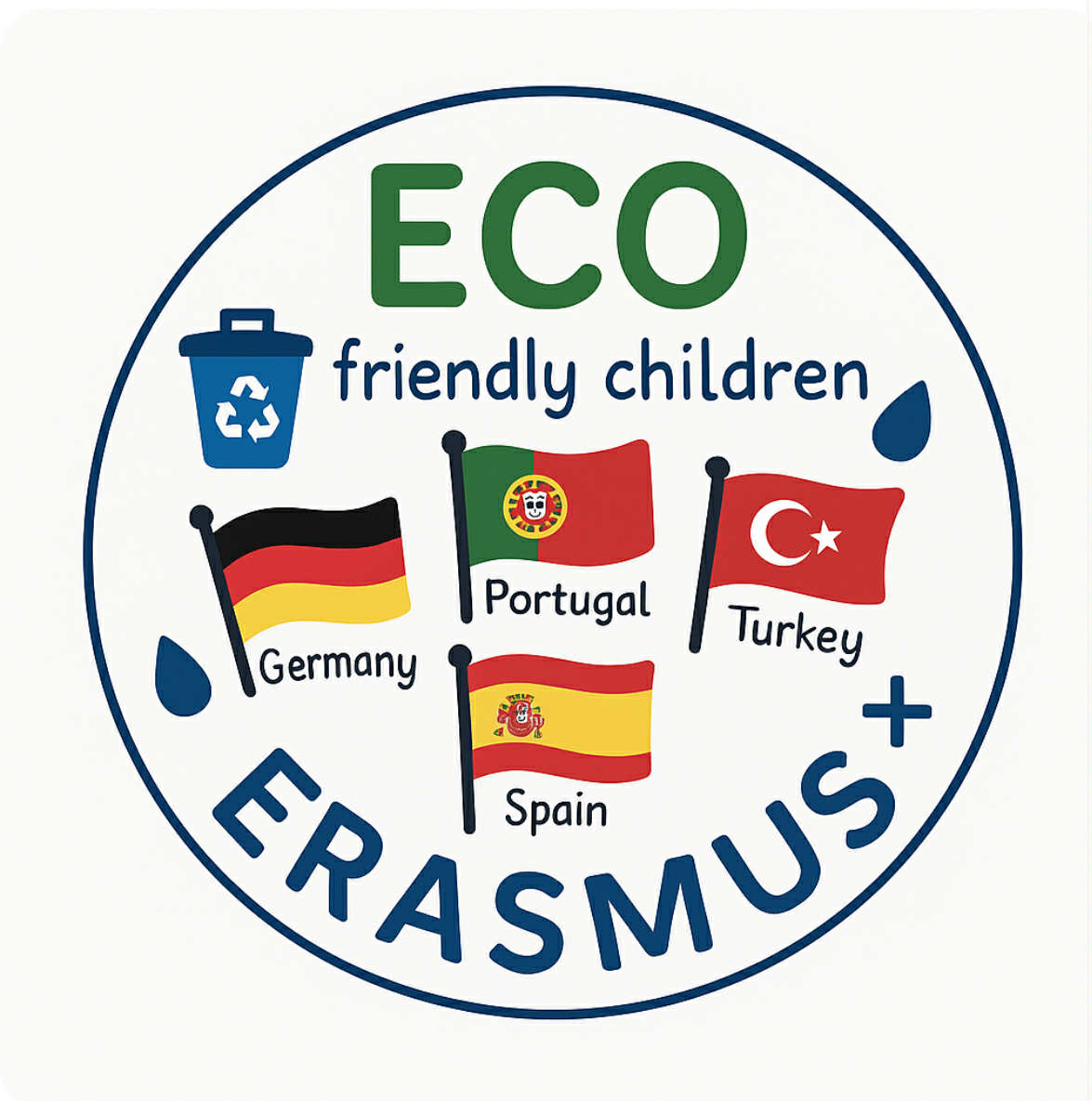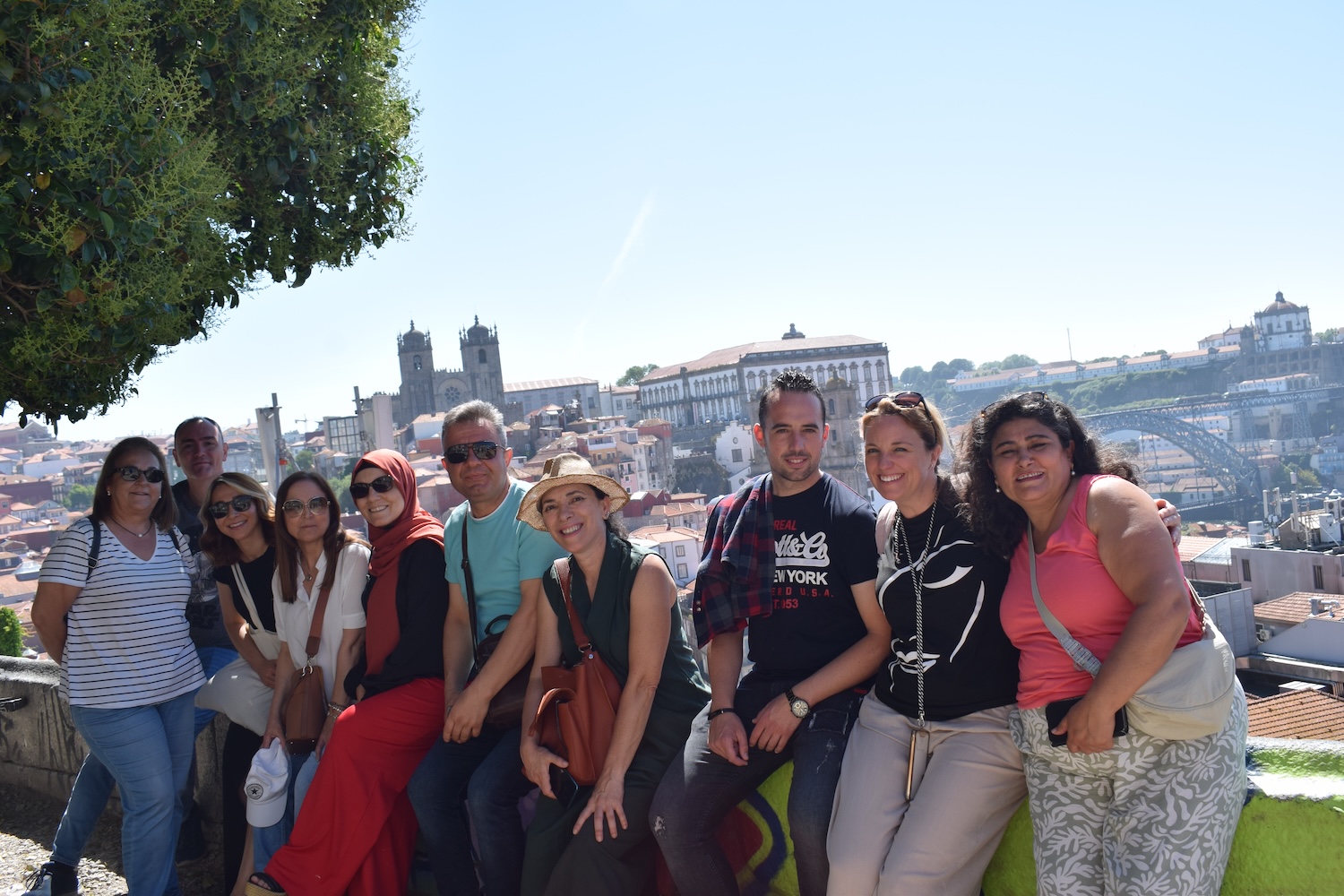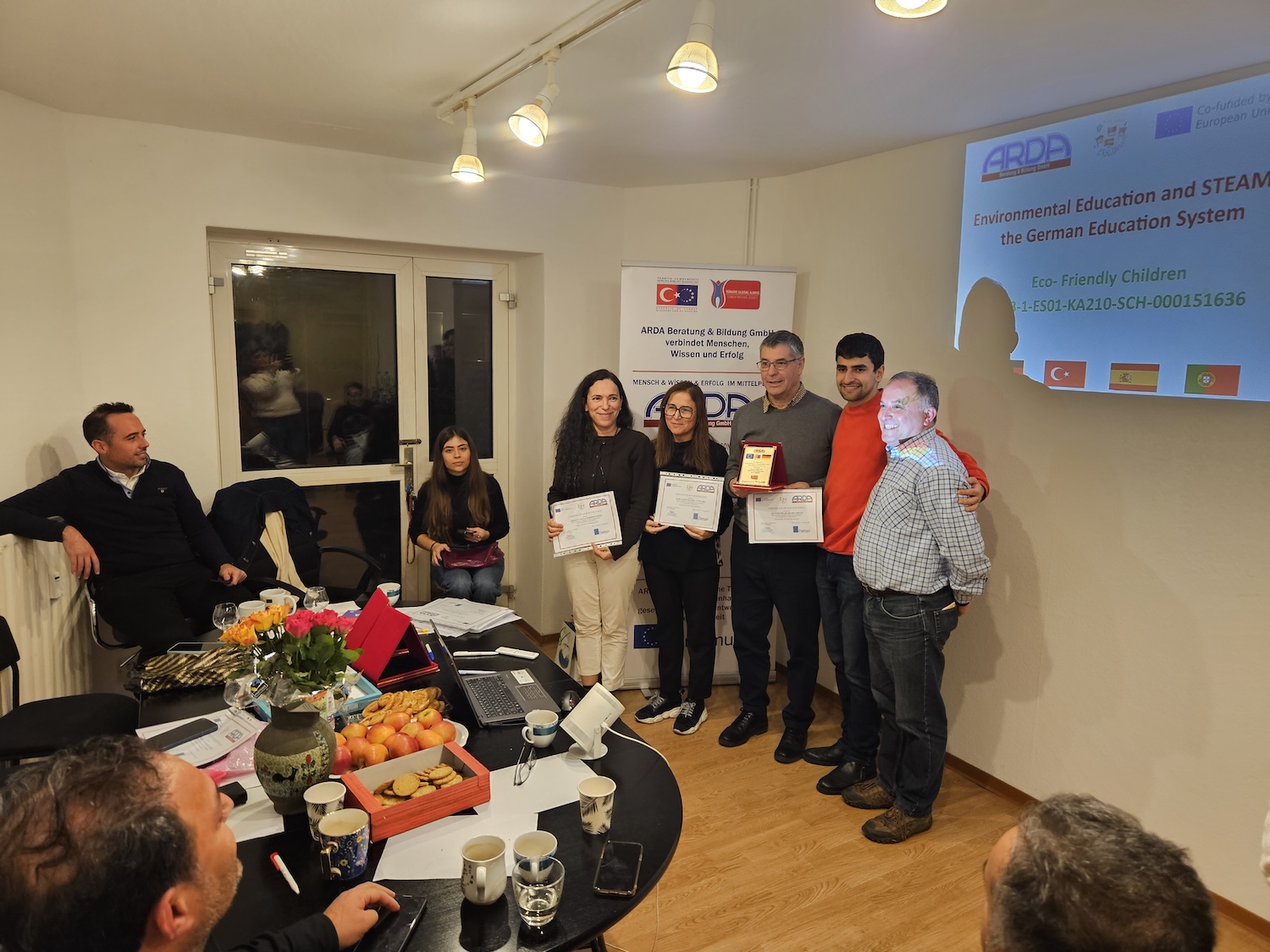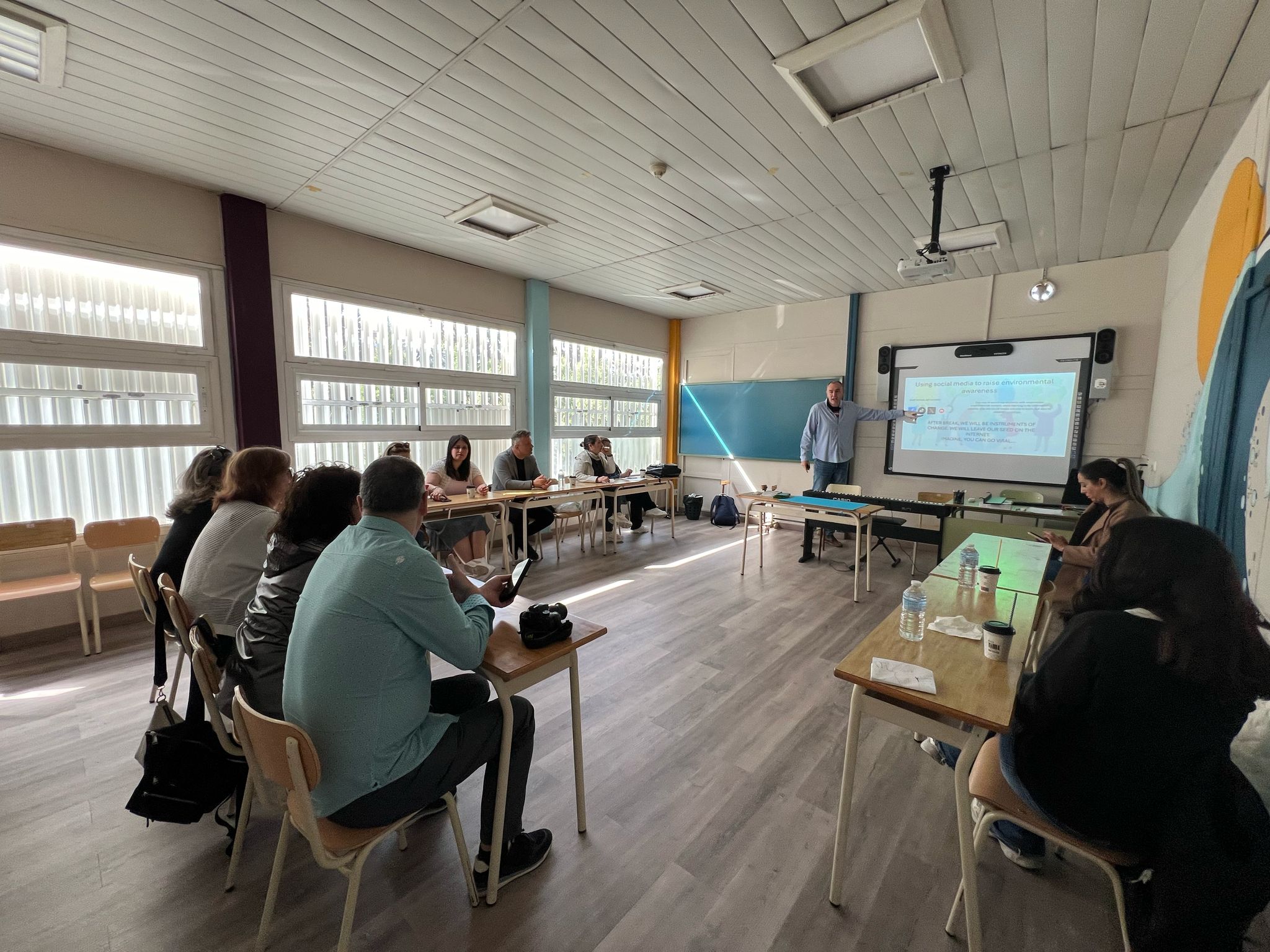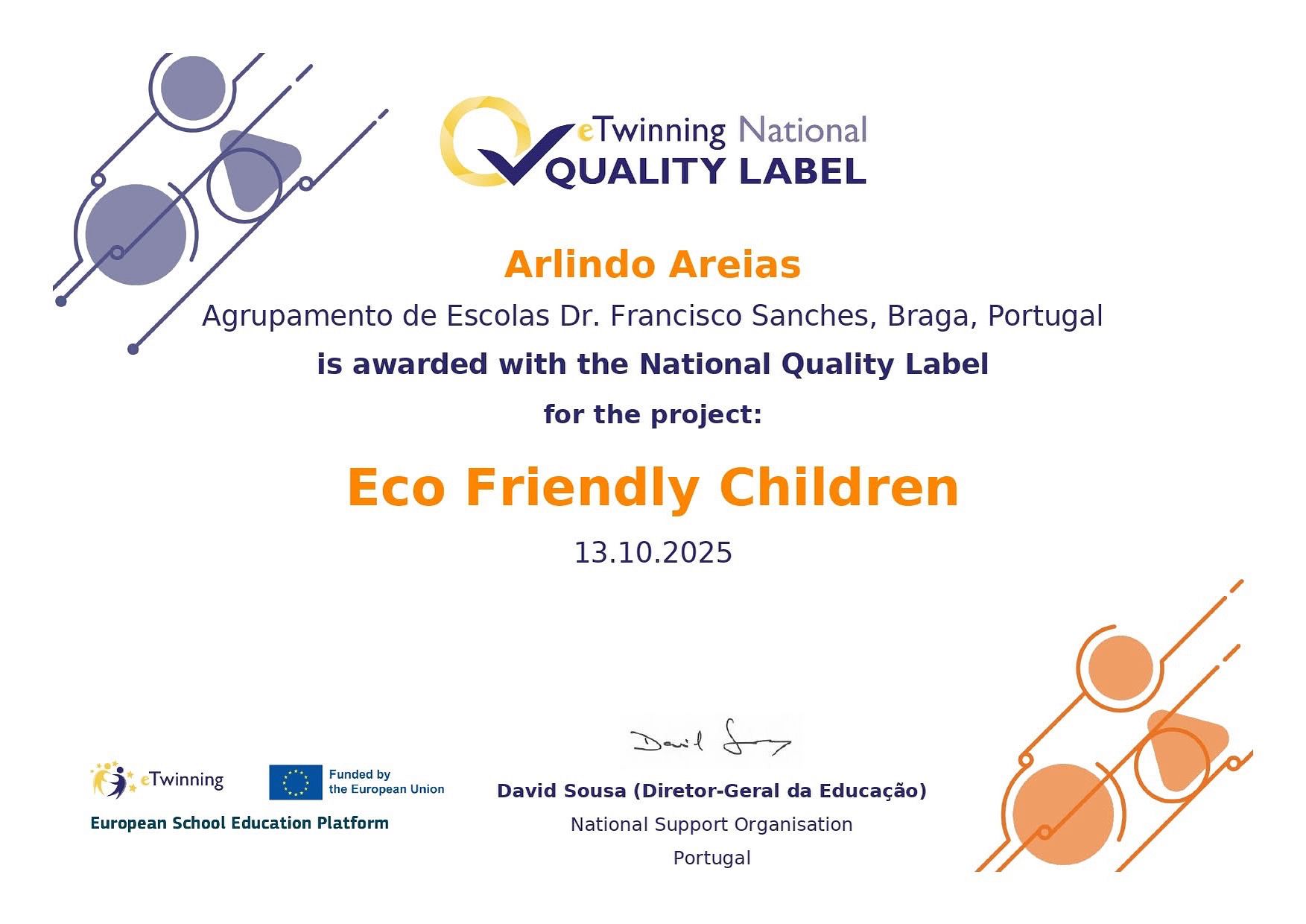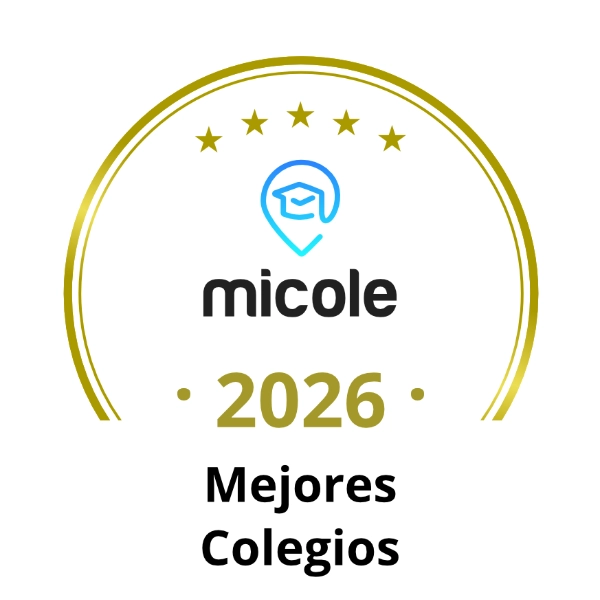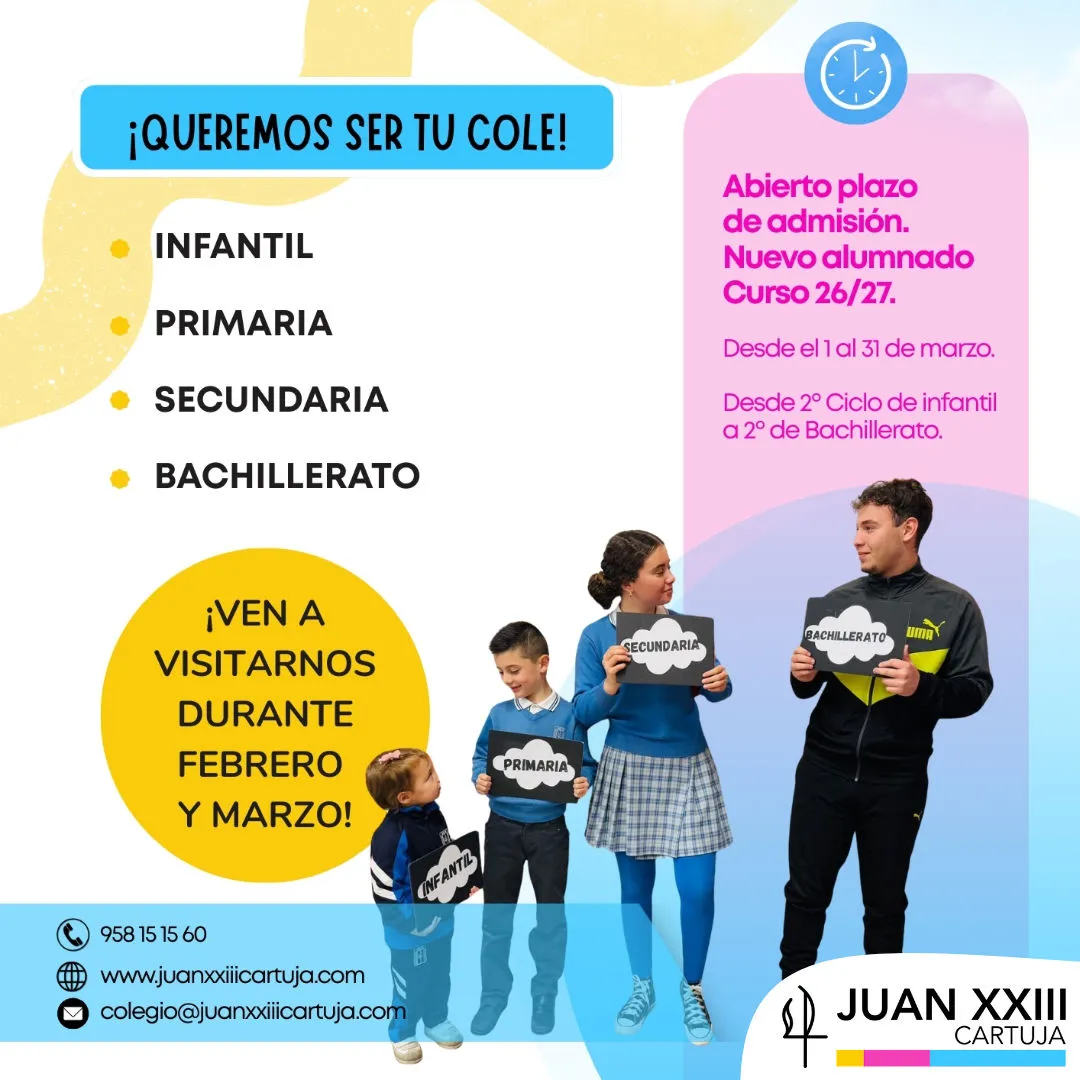Virtual Student Activity – Online Environmental Exchange
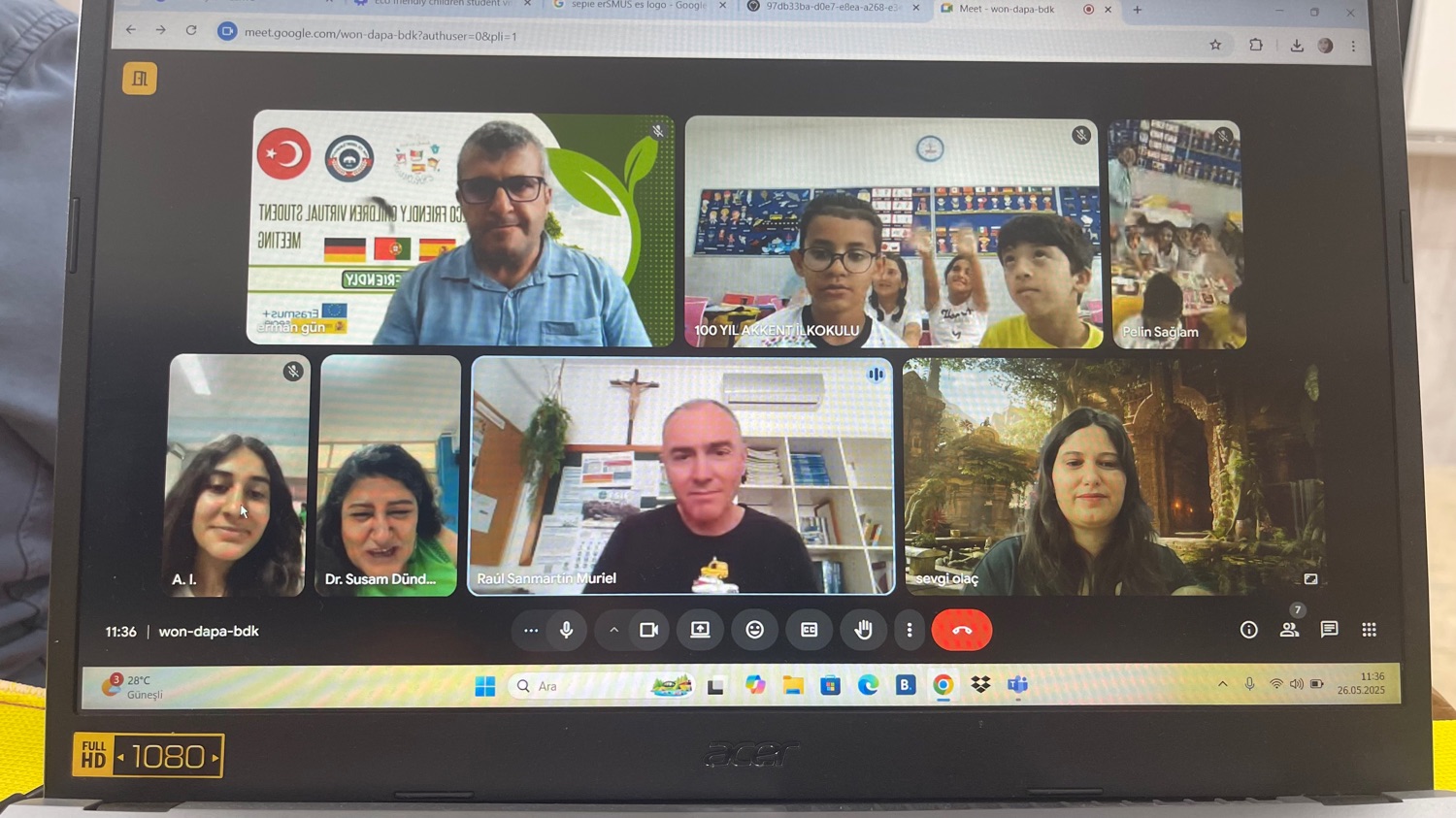
The final activity in the Erasmus+ "Eco-Friendly Childrens" project was a two-day virtual student event, designed to bring together learners from all participating countries—Spain, Portugal, Germany, and Turkey—for an international digital exchange focused on environmental education. The activity followed the implementation of the three previous in-person meetings, providing students with an opportunity to reflect on and share what they had learned. Through video calls, online presentations, and collaborative digital tools, students presented eco-projects, recycling efforts, and creative ideas developed in their schools. This online setting enabled real-time interaction, allowing students to ask questions, exchange opinions, and work together on climate-related challenges, despite geographic distances.
Each school selected a diverse group of students to participate, including those from refugee or disadvantaged backgrounds, promoting inclusion and equal opportunity in line with the project's values. The sessions included virtual workshops, cultural presentations, and interactive quizzes, encouraging engagement and active learning. One of the highlights was the digital exhibition of student-created environmental materials such as posters, videos, and animations made using Web2 tools. The activity also served as a platform to showcase outcomes of the ongoing eTwinning project, reinforcing digital citizenship and collaboration across borders.
This virtual mobility contributed significantly to the students’ sense of European identity, intercultural understanding, and environmental responsibility. It also allowed teachers to observe student collaboration in an international setting and gather valuable insights for future classroom activities. In addition, the digital nature of the event aligned with the project's goal of reducing environmental impact and promoted the use of low-carbon, tech-driven educational solutions. The experiences and results from this activity were documented and shared through the project’s website and social media channels, ensuring wide dissemination.
